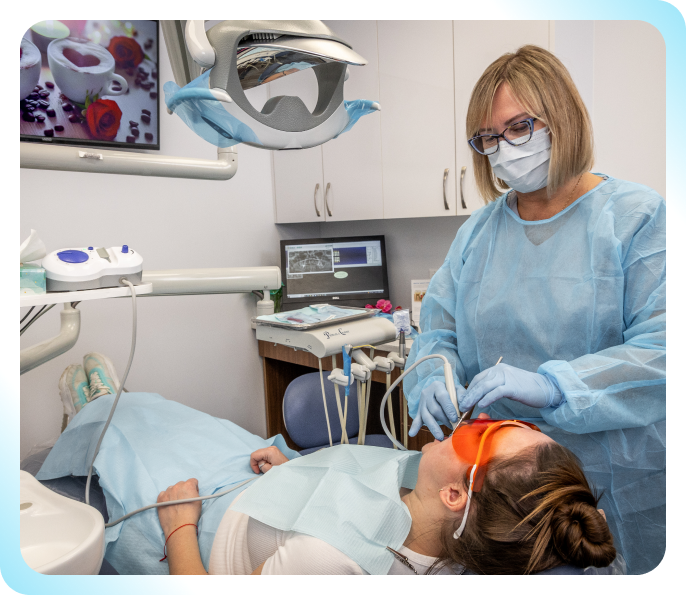
Dental implants are also called teeth implants and artificially replace missing tooth roots. They consist of metal screws that are inserted permanently into the jawbone during an oral surgery procedure. They can support artificial teeth, including dental crowns, bridges, and implants.
If you face losing one or more teeth, you will almost certainly benefit from dental implants. Tooth loss can occur due to the following reasons:
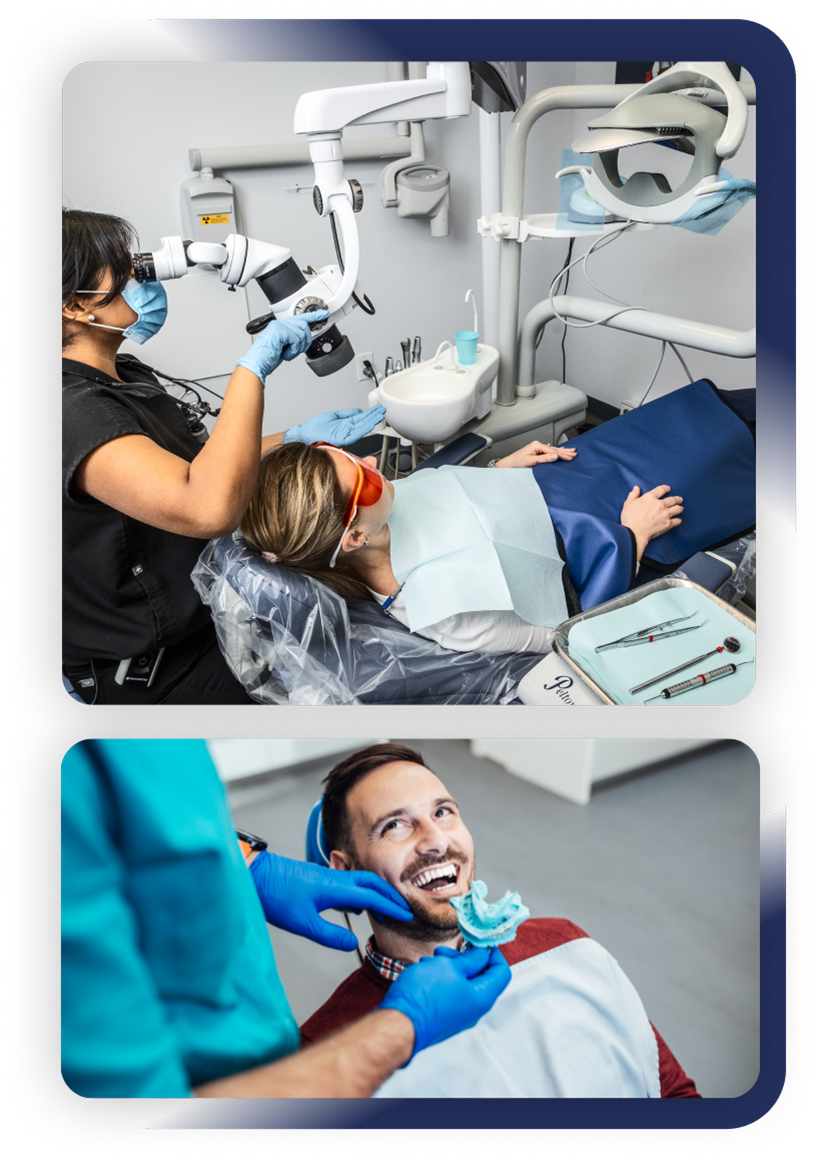
A dental implant usually has three components. The first is the threaded screw that is placed into the jawbone. The second is a connector or abutment that is attached to the screw. The third and final component is the implant restoration.
When a single implant is placed, this can be an implant crown. Multiple implants can restore teeth using an implant bridge. Implant crowns and bridges are non-removable. They are screwed or cemented onto the abutments
Dental implants can support a removable implant denture. Instead of being screwed or cemented in place, the implant denture clips onto the abutments or a metal bar attached to the abutments
Most dental implants are made from titanium. Some are metal-free and are made from a ceramic called zirconia. Both materials are medical grade and biocompatible, meaning they work harmoniously with the natural tissues inside your mouth, including the bone and gum tissue.
Dental implants can provide several distinct benefits that include:

Because a surgical procedure is required, there is a small risk of complications. We take extensive precautions to minimize these risks, but they can include:
We use advanced planning and placement techniques to avoid damaging other tissues like nerves and sinuses. By ensuring your implants are placed correctly, we can restore them properly, providing full functionality without compromising on appearance. We adhere to the highest infection control standards to keep patients and our staff safe.
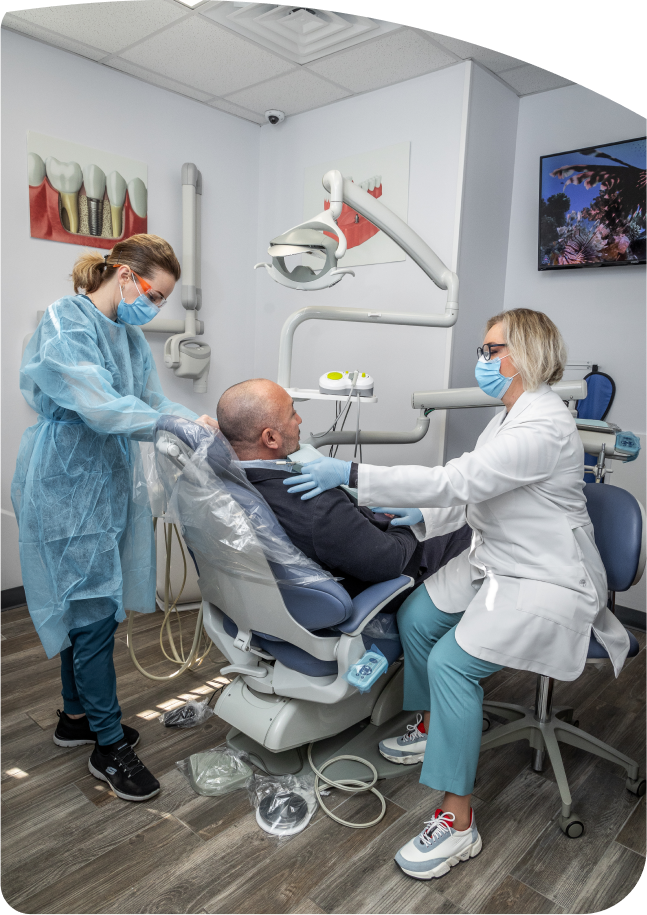
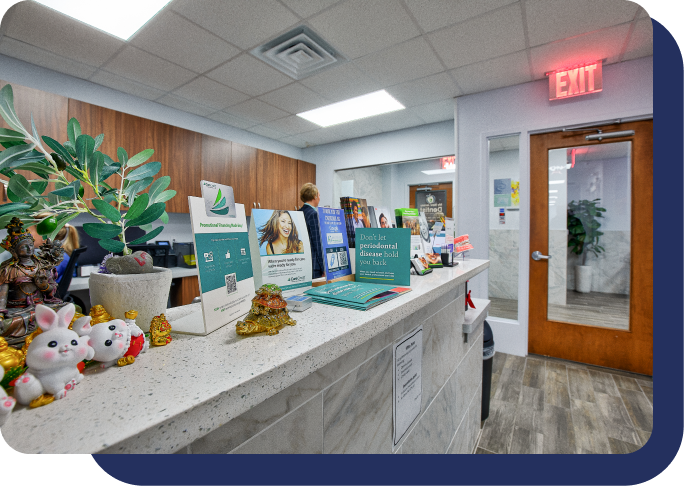
Most people are suitable for dental implants, but you will need a full consultation so we can determine if they are right for you. Factors that must be considered include your dental and general health and whether you smoke.
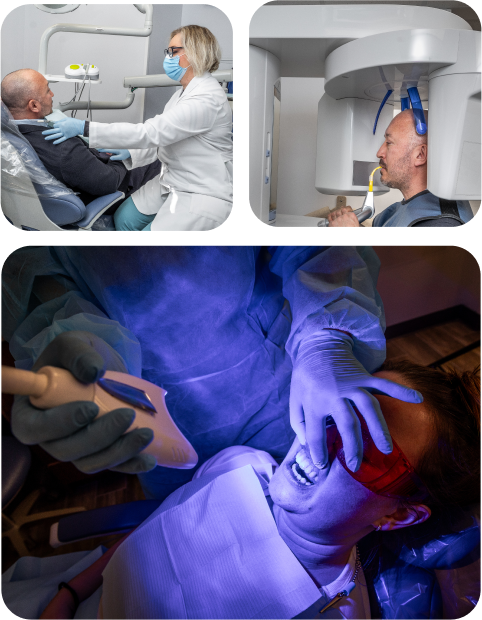
Certain factors can mean dental implants may be less suitable for your needs. These include:
You will need an initial consultation with our implant dentist so we can conduct a dental exam and assess your oral health. You must bring a list of all current medications and supplements with you. We must review your medical health to ensure implants are appropriate.
Sometimes, liaising with your primary healthcare provider may be necessary to ensure any health conditions that could interfere with your implant success are properly managed. You may also need to get clearance for implant treatment.
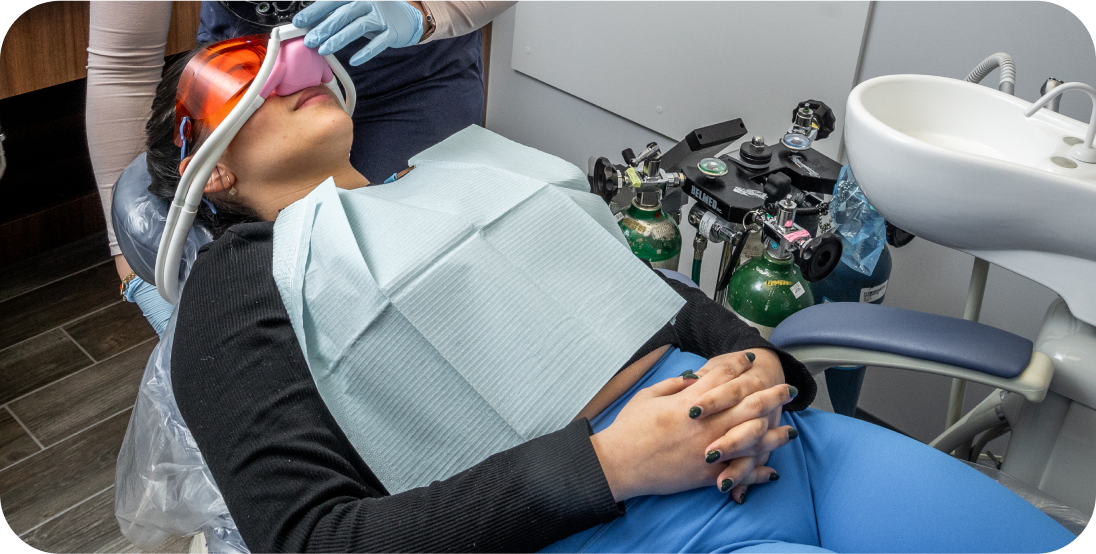
After assessing your oral and medical health, we can suggest possible treatment options that might suit you. These will depend on the number of teeth missing and your restoration preference, for example, a fixed or removable prosthesis. We must also take diagnostic tests.
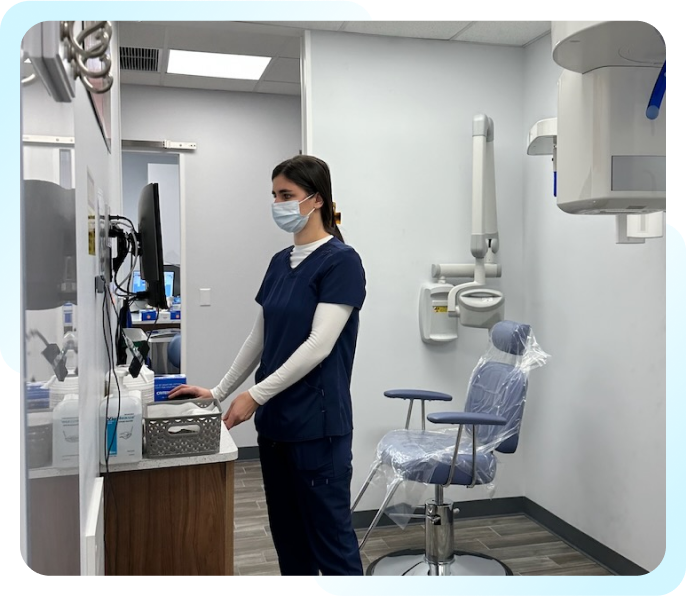
Diagnostic tests like digital dental x-rays and a cone beam CT scan allow us to assess your dental health more closely. We use these images to quantify the amount of healthy jawbone available for implant placement. They are also used to plan your implant surgery, determining where each implant must be located to avoid vital structures.At this point, we can look at other factors, such as the cost of implant surgery.
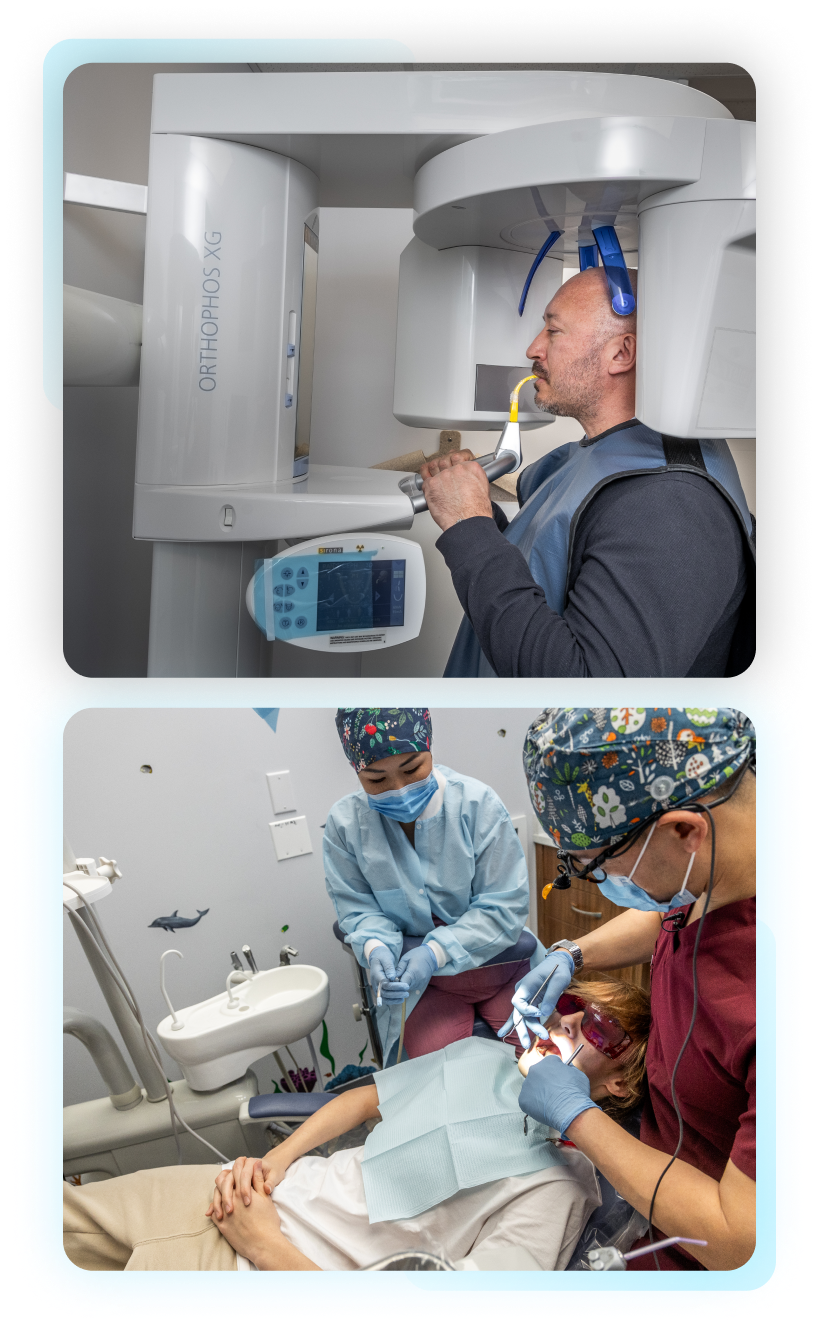
Once we have reviewed your oral and medical health and discussed your aims for treatment, we can provide a custom treatment plan. The plan will detail all possible options and their costs. These can vary depending on the implant system chosen and the final restoration and materials used to fabricate it. The plan will also outline other treatments that may be necessary, such as bone grafting.
Dental bone grafting is often needed in preparation for implant surgery because the implant posts need a specific amount of bone with which to bond. Without it, there is a higher risk of implant failure, or you may be deemed unsuitable for implant surgery.
Other treatments that might be needed include removing failing teeth or treating existing dental problems like tooth infections or gum infections. We can also discuss sedation dentistry if required.
We know some dental offices offer cheap dental implants, but these can be a false economy. It’s important to ensure you receive top-quality implant components and advanced diagnostics and planning to ensure they are placed correctly. The advertised prices may also fail to cover additional procedures like bone grafting or diagnostics, such as a cone beam CT scan.
If you have good dental insurance, it may cover at least part of the cost of implant treatment. It depends on whether your insurance provider regards implant surgery as a restorative or cosmetic dental procedure. Increasingly, insurance providers are recognizing the oral health benefits of implant surgery and are beginning to cover this treatment.
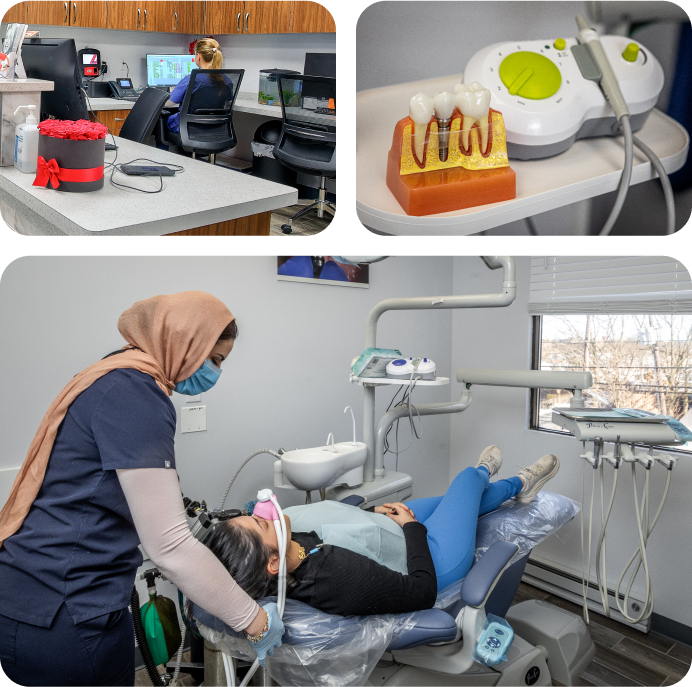

Not everyone will need sedation dentistry. For example, a single dental implant can be completed under local anesthetic and can take an hour or less to complete. However, dental sedation can be useful for anyone needing lengthier treatment or more complex procedures like bone grafting. It can also help anyone with dental fears or anxieties to relax during implant surgery.
If you wish to have sedation dentistry, you must arrange for someone to accompany you to your appointment and drive you home afterward.
Using digital technology, our implant surgeon will have preplanned your treatment stage by stage. When you come to sit in the dental chair, they will already know where each implant is to be inserted. A surgical guide or stent is a template placed over your gum that guides our implant surgeon during jaw treatment, ensuring your treatment plan is replicated. During surgery, we will
These are the general steps that will occur, but every case is different. Sometimes, removing the failing tooth, inserting a dental implant, and placing a temporary implant restoration during the same visit is possible. Immediate dental implants are a popular solution but are only suitable in certain circumstances.
Even if you are unsuitable for immediate implants, we can provide another temporary restoration during healing. It generally takes three months for an implant to heal or fuse in your jawbone, and while healing, the implant mustn’t be disturbed.

With the right care, your implants should be problem-free for years or life. You must commit to looking after them properly. After implant surgery, we will show you how to clean around them thoroughly.
Regular dental exams and hygiene appointments allow us to check the condition and clean them professionally using specialized tools. Some implant components may need replacing periodically, such as the fitments for implant dentures. Implant restorations like crowns, bridges, and overdentures will also need to be occasionally replaced.
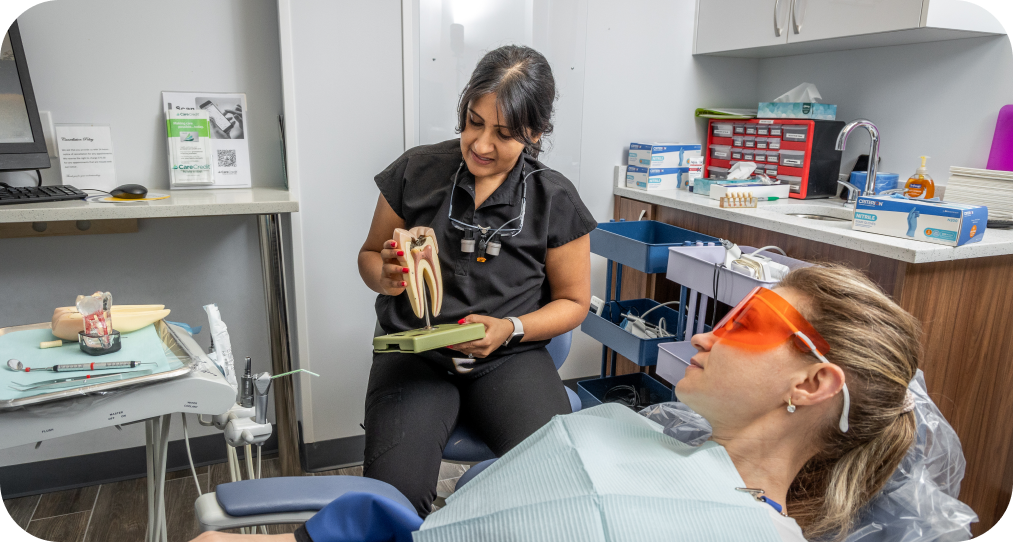
If you are looking for the best dental implants, schedule a consultation with our top-rated dentist to discover more about this advanced treatment. We offer a range of solutions, including affordable dental implants like overdentures.
After implant surgery, we will give you precise post-operative instructions and may prescribe antibiotics to prevent infection. Follow these instructions closely and take all medications exactly as we prescribe.
Recovery after implant surgery should be smooth, uneventful, and relatively comfortable. However, if you are concerned or have significant discomfort or pain, please get in touch with us so we can help you.
Once the implant is fully healed, we can make your permanent dental restoration. It’s important not to fit this too soon as it could increase the risk of implant failure.
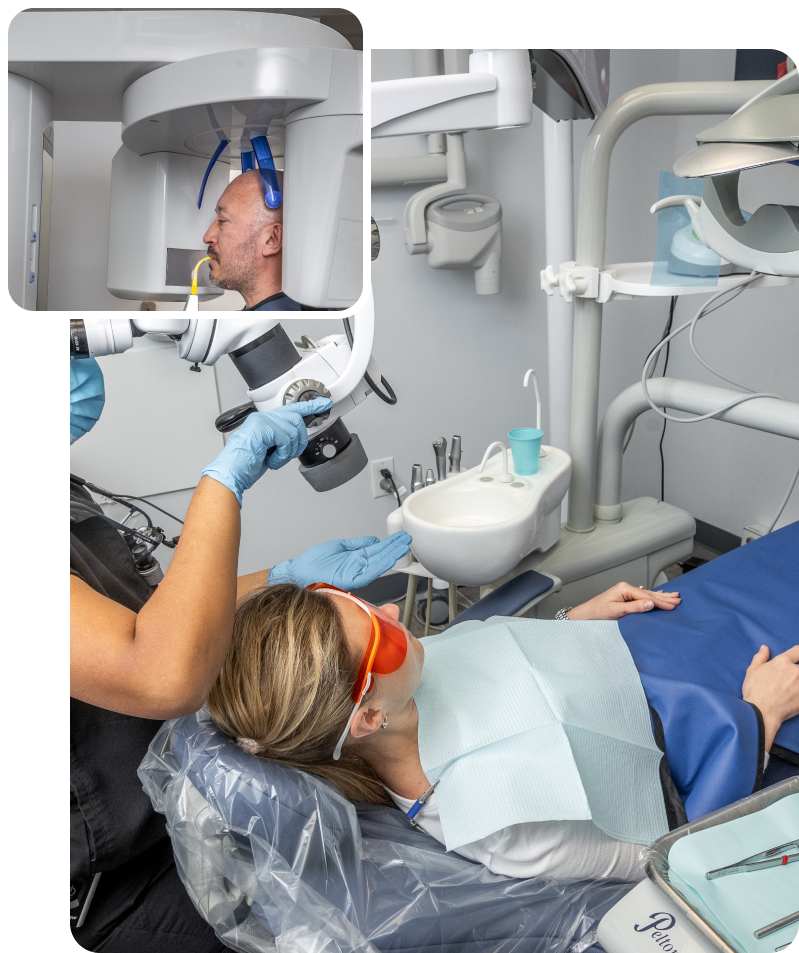
My NJ Dentist: Victoria Kushensky, DDS
385 Prospect Ave Suite 304
Hackensack, NJ 07601
(201) 298-8000